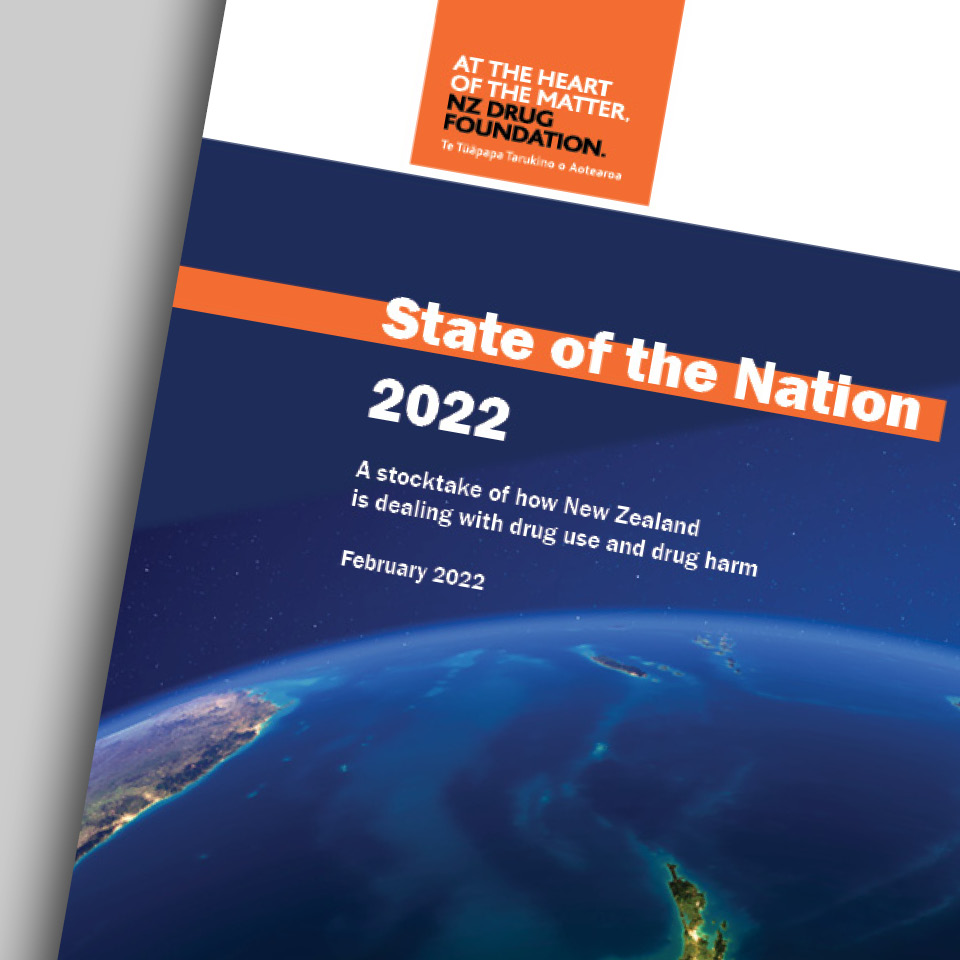Drugs snapshot shows system grossly failing Māori across the board

A new report shows that New Zealand’s approach to drugs is leading to grossly unequitable outcomes for Māori across the board.
The NZ Drug Foundation’s 2022 State of the Nation, which pulls together the latest data on drug use, harm and enforcement from across government departments, Police and the education system, shows tangata whenua are being failed across nearly every aspect of the report:
- Drug-related deaths for Māori are three times the rate for non-Māori
- Wāhine Māori are 3.6 times more likely to smoke daily than non-Māori women and are 2.7 times more likely to use amphetamines
- Only 42% of Māori in addiction treatment were double vaccinated as at late-November – half the rate of the general population
- Māori make up 48% of those convicted for drug possession offences and 61.9% of those sentenced to prison.
NZ Drug Foundation Executive Director, Sarah Helm, says that while the stats show the enduring impact of colonisation, they also show that current-day policies are compounding that harm, not reversing it.
“The only word to describe a system where Māori make up two-thirds of those sentenced for drug-related offences is racist. There isn’t any other way to describe it. We urgently need to change gear if we’re to reverse generations of harm.”
Helm says that the harms from a punitive approach to drug use, instead of genuine health approaches, are evident throughout the report, with that impact falling most heavily on Māori.
“Our drug laws are broken, and this report shows that across the board. We know that criminalisation doesn’t deter use – it actually causes harm because it stops people from reaching out or seeking help if they need it.”
Helm says that work to reduce stigma of people who use drugs, setting up overdose prevention and harm reduction services, and bolstering drug support offered through health services will all contribute to improving outcomes for tangata whenua.
She also says that while it’s by no means a silver bullet, decriminalisation would also go a long way to curbing many of the harms highlighted in the report.
Recent news

Untreated ADHD leading to addiction and drug harm
A new report shows New Zealand’s failure to adequately diagnose and treat ADHD is likely leading to significant drug harm, including from alcohol and nicotine.

Report: Neurodivergence and substance use
Our latest report pulls together international evidence and local experiences of how neurodivergence impacts drug use

What researchers at University of Auckland are learning from giving people microdoses of LSD
‘Microdosing’ psychedelics involves taking small, repeated doses of a psychedelic drug. Researcher Robin Murphy talks us through the latest Auckland University microdosing study.

